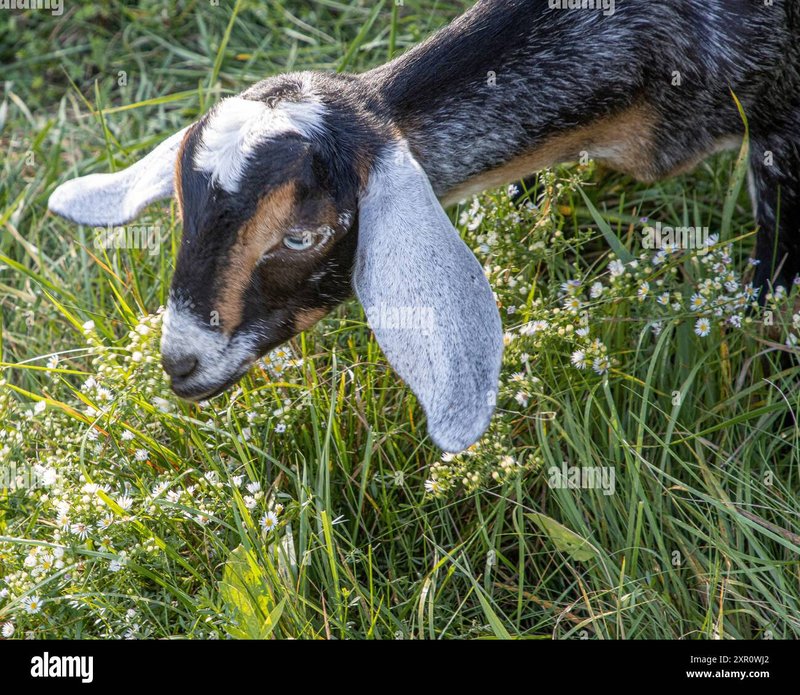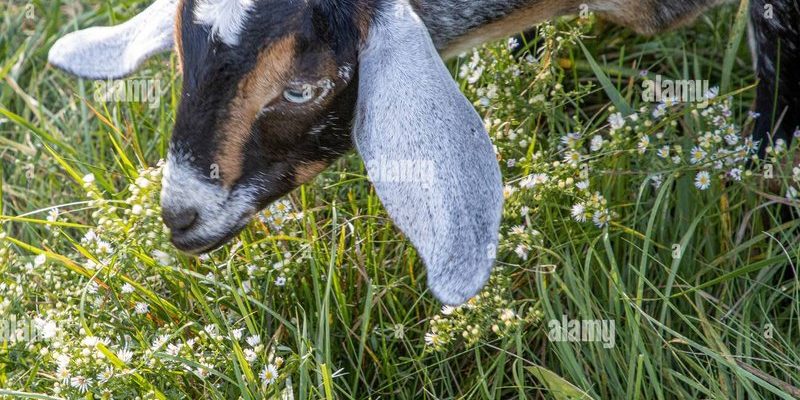
So, whether you’re a seasoned goat owner or a complete newbie trying to figure out what to feed your furry friends, this guide will take you step by step. Think of it as a roadmap to keeping your Nubians happy, healthy, and well-fed. Ready to dive in?
Understanding The Nutritional Requirements
Just like humans, Nubian goats have specific *nutritional needs* for optimal health. The primary components of their diet include fiber, protein, vitamins, and minerals. Ideally, a balanced diet should consist of about 75% forage—like hay or pasture—and 25% concentrate, which includes grains and supplements.
You might be wondering, “Why so much forage?” Here’s the thing: goats have a unique digestive system designed to break down fiber. Their stomachs are split into four compartments, allowing them to extract as many nutrients as possible from fibrous plants. If they don’t get enough fiber, they could end up with digestive issues, which can lead to serious health problems.
Additionally, Nubians are known for their high-quality milk production, and that requires extra energy. They need a combination of nutrients to not just survive but thrive, especially if they’re lactating. This means paying close attention to what they’re eating, just like we should with our diets.
Choosing The Right Forage
When it comes to forage, variety is key. Nubian goats love a mix of grasses, legumes, and browse. Think of it as a salad bar for goats! Some popular choices include:
- Timothy hay
- Alfalfa hay (great for lactating goats due to its higher protein content)
- Orchard grass
- Mixed legume hay
Offering a variety of hays keeps them interested and encourages foraging behavior, which is natural for them. It also helps ensure they get a balanced diet. Speaking of balance, always check that the hay is free from mold or dust, as this can lead to respiratory issues.
If you have access to pastures, letting your Nubians graze can really enhance their diet. They’ll enjoy munching on fresh grass, clover, and other tasty plants, which provide essential nutrients. Just make sure that your pasture is free from toxic plants like *oleander* or *alyssum*—some greens can be harmful if ingested.
Supplementing With Grains and Concentrates
In addition to good forage, Nubian goats can benefit from a select amount of grains and other concentrates. This extra boost of carbs and proteins is essential, especially for pregnant or lactating does. Here’s what you might consider adding:
- Grain mixes: These often contain a combination of oats, corn, and barley.
- Pelleted feed: A complete feed can provide all necessary nutrients if you’re unable to balance forage and grains.
- Mineral supplements: Essential for preventing deficiencies, especially calcium and phosphorus.
It’s important, though, to be cautious with the quantity. Too much grain can lead to obesity or digestive problems, so always introduce any new feed slowly. You wouldn’t start a fancy diet overnight, right? The same goes for your goats!
Water Is Vital
Let’s not overlook the importance of fresh, clean water. Nubian goats should have access to water at all times. Think of it as their lifeline! Dehydration can lead to severe health issues, especially during hot weather.
A good rule of thumb is to provide at least one gallon of water per goat daily, but this can vary based on factors like activity level and temperature. When it’s really hot out, they may need more. Keep an eye on their water trough—clean it regularly to avoid algae and bacteria buildup. You wouldn’t want to drink from a dirty glass, right?
Recognizing Nutritional Deficiencies
Sometimes, despite our best efforts, our goats can face nutritional deficiencies. Recognizing the signs early can save you a lot of trouble. Here are a few red flags to look out for:
- Poor coat condition: A dull or rough coat can indicate a lack of essential fatty acids.
- Weight loss: If your Nubian is losing weight despite regular feeding, it might be time to reassess their diet.
- Changes in behavior: Lethargy or changes in appetite can signal health problems.
If you notice any of these signs, it’s best to consult with a veterinarian. They can guide you on dietary adjustments or supplements that might be necessary.
Special Dietary Needs for Breeding and Lactating Goats
Breeding and lactating Nubian goats require extra attention to their diets. When a doe is pregnant or nursing, her nutritional needs can soar. This is when you want to make sure she’s getting enough protein, calcium, and energy to support her health and that of her kids.
During pregnancy, increase her grain amounts gradually and consider a higher-quality hay to meet those energy needs. After kidding, her milk production is directly tied to her diet. So, providing calcium-rich foods like alfalfa or specific mineral supplements can help with milk quality and quantity.
You might wonder how to manage this without overwhelming her—don’t worry! Introducing changes slowly will make it easier on her system and help keep her happy.
Feeding Nubian goats might seem complex at first, but it really boils down to a few key principles: a mix of quality forage, balanced grains, and fresh water. Just like we thrive on varied diets, your goats will flourish when they have the right nutrients.
Keeping an eye on their health and adjusting their feeding routine as needed will pay off in happy, healthy goats that will keep you company for years to come. Remember, a well-fed goat is a happy goat! With this guide, you’re well on your way to becoming a fantastic Nubian goat caregiver. So grab that hay, fill up those water troughs, and enjoy the joy that these lovely creatures bring to your life.

